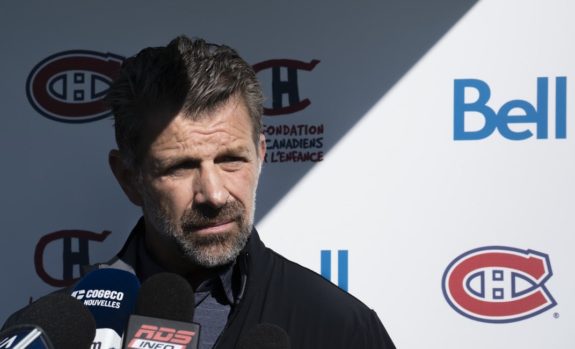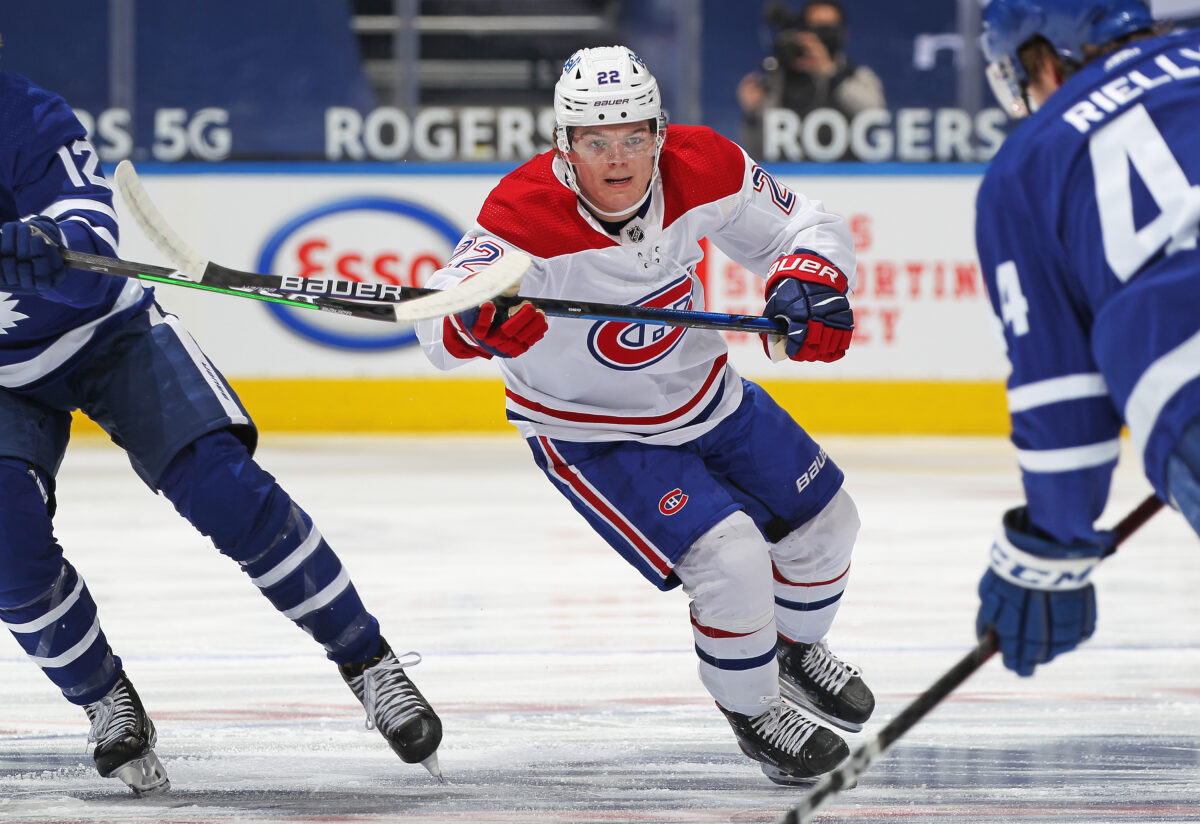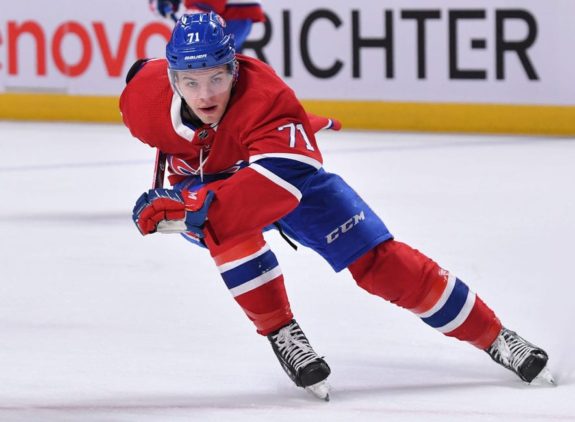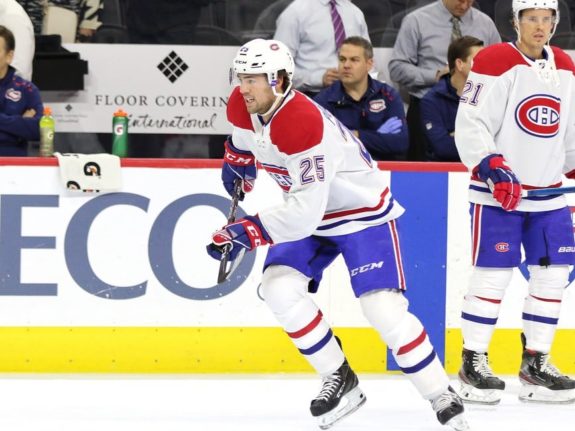The Montreal Canadiens are entering the 2021-22 season as underdogs; a role they always seem to play, no matter the outcome of the previous season. However, this season, due to the injuries and lineup changes, it’s warranted. Thanks in part to the retool placing an increased focus on the draft, some changes to the development philosophy and process with an ECHL affiliate being added, the Canadiens finally have the ability to develop and promote from within.
However, this season, the young stars will need to play an increased role for the Canadiens to be a playoff team. It’s a departure from general manager Marc Bergevin’s consistent reliance on veteran players to fill key positions. Instead, he and head coach Dominique Ducharme will have to rely on their inexperienced players to fill those roles on special teams and at five-on-five.

This new philosophy, forced upon them by circumstance, marks a key moment in the Canadiens’ retool; it’s the moment when the new generation takes over. The passing of the torch and the success it brings will be Bergevin’s legacy in Montreal. But, to be successful, several players will have to step up to keep the team in playoff contention.
Forwards
Nick Suzuki
Entering his third season, the final one of entry-level contract, Nick Suzuki has become the Canadiens’ top-line center, and management is banking on him developing even more, evident by his recent 8-year, $63 million contract extension.
Related: Canadiens Get Good Value With Suzuki Contract
Last season, Suzuki’s 41 points in 56 games put him on pace for 60 points over a full season. In 2021-22, the Canadiens will need that and more from the 22-year-old. He will need to create offence while playing against the opposition’s top lines. Also, he will be relied upon to help the power play.
As Jason Paul notes in his tweet above, Suzuki has the skillset to be a true power play threat. Montreal is expected to be in tough in a very deep Atlantic Division, and the man advantage may become a key weapon to win games when they are unable to generate enough five-on-five scoring.
Cole Caufield
Caufield is technically entering his rookie season. He is also one of a handful of favourites to compete for the Calder Trophy as the league’s top rookie. That will be exactly the type of season required of him to help the Habs compete for a playoff position.
He already understands the pressure as he played right wing on the team’s top line during their run to the Stanley Cup Final last season, picking up key goals and assists along the way and proving he can lift his game when it matters. He will now need to embrace that pressure over an 82-game schedule.

Caufield plays with Suzuki on the top line, and fans will likely see them together for many years. Both are capable defensively and at creating offence off the rush, but they need someone strong to complete the line. Tyler Toffoli is currently on the left-wing, and while he complimented the duo well in the playoffs, over a long season, Ducharme will try a few options to find someone who can play a more physical cycle and retrieval game that will ensure Caufield gets the puck to release his elite shot; it’s a weapon that could make him a game-breaking talent.
Jake Evans
Jake Evans is a development success story for the Canadiens. The 2014 seventh-round pick took time to develop his game before finally graduating to the NHL full-time last season when his defensive acumen earned him the trust of the coaching staff to play on the penalty kill and against any opposition.
Evans is best deployed in a fourth-line role, however, this season he will begin as the third-line center, which means he will be taking on some of the defensive responsibilities left vacant by Phillip Danault, who signed with the Los Angeles Kings this summer.

Point production won’t be Evans’ main contribution to team success. His impact will be felt on the penalty kill as well as playing an energy role following a power play to help Ducharme keep or regain his team’s momentum. This will be an important role and will allow the top-six forwards to recover longer between shifts.
Defense
Alexander Romanov
The Canadiens blue line is ageing and lacks mobility. This is where Alexander Romanov will be needed; to help modernize the team’s defensive approach. He is a hybrid of the physical stay-at-home defender management has come to rely upon and the more modern puck-moving defenseman that can help the team succeed. Jeff Petry will need all the help he can get in the top four and on the power play to keep the puck moving up ice. An indicator that is possible is Romanov’s work ethic.
Luke Richardson will spend a lot of time in one-on-one sessions with the 21-year-old defender. Romanov has the pedigree, as a former World Junior Championship star who was named the 2018 tournament’s top defenseman and as a tireless worker and student of the game, to take that next step.
He will be expected to grow into a top-four role this season. If he can, it can help alleviate a lack of mobility that has caused the team problems with controlled zone exits in over the last few seasons. He is a very mobile defender who can make controlled zone exits, which will be a key factor in the Canadiens’ ability to generate offence off their transition game.
In the System
Ryan Poehling
Of the many promising prospects in the Habs’ system, Ryan Poehling is closest to graduation, and his path demonstrates a new approach to development that fans have been waiting to see.
Poehling is entering his third professional season, and this year, he will start in the American Hockey League with the Laval Rocket. He performed well enough at training camp, with good possession stats and strong faceoff numbers, despite coming off an injury, that he could have been pencilled in as the team’s fourth-line center. But that isn’t what the 2017 first-round pick was drafted to become.
Some players take more time. Fans complained that Jesperi Kotkaniemi was rushed into the NHL at 18 and should have been sent back to Finland. It’s never been deemed an issue that a player spent too long in the minors developing their game before making the leap to the NHL.

The goal is to have the six-foot-two former first-round pick, patrolling center and playing a solid two-way game on the Habs’ third line. It may take longer than fans would like, but if development is the organization’s Achilles heel of the organization, then the decision to send Poehling to the AHL should ease some minds, for now, since it seems management is trying a different approach with one of their top prospects: a patient one.
In Laval, Poehling will play top-line minutes in all situations, which will allow him to grow confident and focus on the details that will benefit him once he is called up permanently. Adding that physical edge and decisiveness to his game will make a major difference not just for him but also for the Canadiens.
The organization began their retool four seasons ago. Its goal was to restock the system with skill and youth. A few high picks and quality prospects had been added which then helped Montreal progress quicker than expected, earning a Stanley Cup Final appearance. However, this can’t be seen as the retool being complete. Letting the up-and-coming prospects and young roster players grow into their role on the team will prove more impactful in the long run.
The success of this franchise can’t be measured by just one season but when they finally become Cup contenders again. Even if it means taking a step back, this changing of the guard will be better for the future of the team.